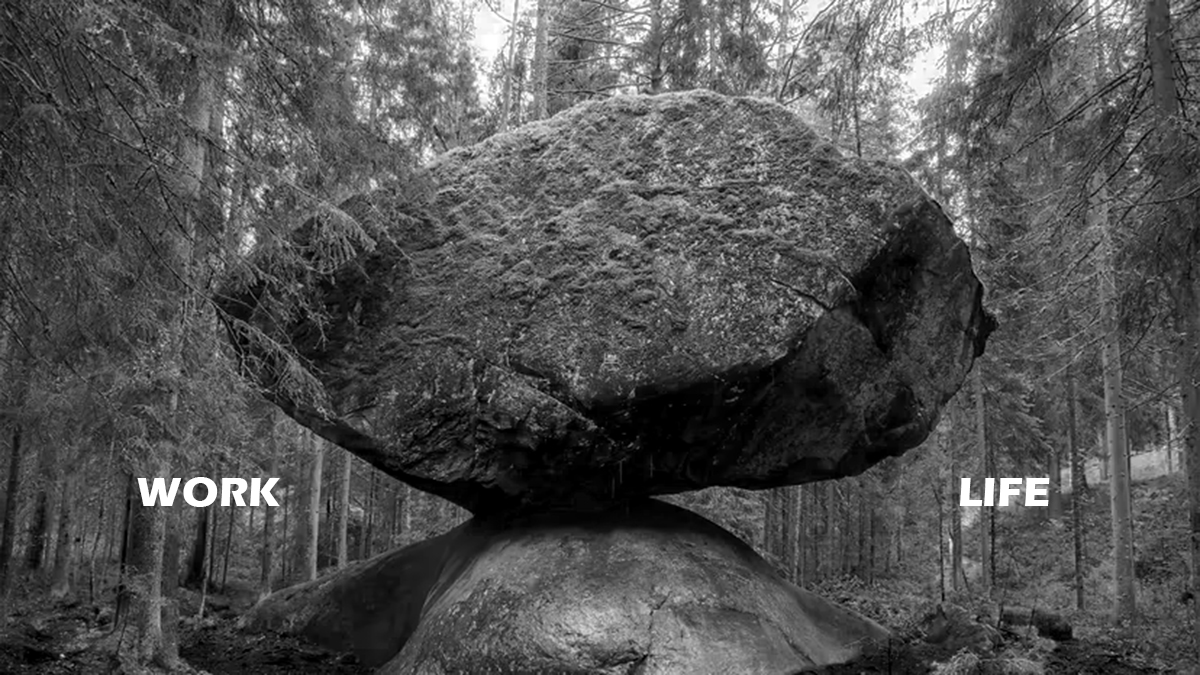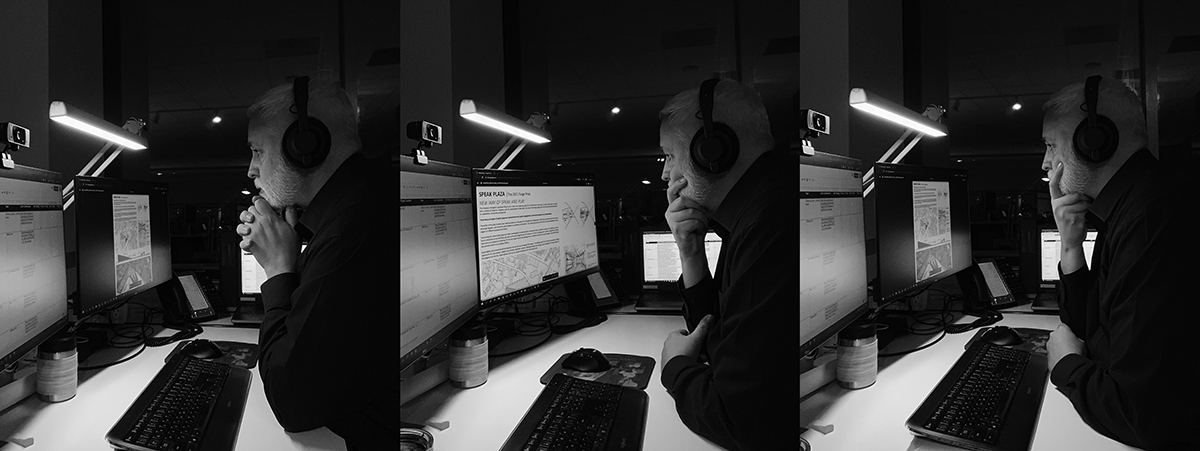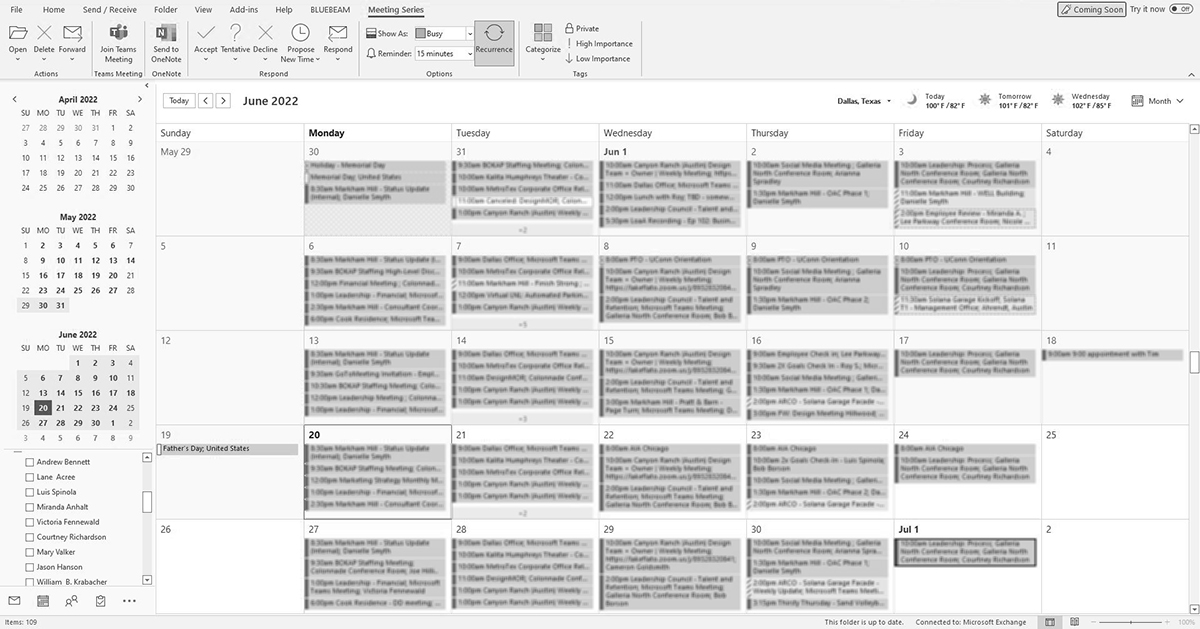Architects work a lot … right? I mean, that’s what most people think, and it’s what you would expect to hear if you straight up asked an architect “Do you work a lot?” Since we all know, or at least believe that the answer is yes, maybe it simply means that architects just like working all the time. Welcome to Ep 116: Workaholic
[Note: If you are reading this via email, click here to access the on-site audio player]
Podcast: Embed
Subscribe: Apple Podcasts | Spotify | Android | iHeartRadio | TuneIn
Today we are going to be talking about the idea that architects are workaholics – either by choice or possibly because it is due to how our industry is set up to function. But first – Happy new year and welcome to 2023!
So … workaholics. Let’s get into this a bit.

Workaholics and the Work/Life Balance jump to 2:10
We have touched on this subject a few times, typically coming at it from the edges but I thought it would be interesting to come at it straight on in today’s episode. This is not intended to be a work-life balance conversation, although it would be easy to fall into that slipstream. In the past, we have discussed the manner in which architects as a collective work and some of the ramifications that come along with the workload that many of us take on, whether that be with our main job, or any of the additional projects we take on in our spare time. This includes:
Ep 82 – The Side Hustle: It seems that everybody these days has a side hustle – a means by which you can leverage your creative genius into an additional stream of revenue to help you makes ends meet between paychecks. Whatever it is, there are a lot of options out there but the question is “What’s right for you” and “Is it even worth it?”
The Takeaway is? Is the prevalence of side hustles and the need for an alternative income stream more reflective of the pay that architects receive, or is it indicative of the need to create and express ourselves in a more free environment? I’d like to think that at worst it’s a combination of the two but think that it is probably more reflective of the need for additional income.
Ep 97 – Burnout: We have all experienced it at one time or another, and for some people, they seem to experience it all the time. Architecture is a profession that seems to require more than its fair share of 40+ hour weeks so it only seems reasonable that we would dedicate a show to this topic.
The Takeaway is?: The architectural profession unnecessarily seems to romanticize the amount of work it takes to do our job but hopefully, this information and today’s conversation can help provide you the nudge you need to get back on the path to a productive and healthier lifestyle. Understanding if you actually have burnout, along with potential steps of action to provide some level of remedy are reviewed and discussed.
 Ep 103 – Architects and the Art of Being Happy: Take a look around and you are likely to see what I see. Read the emails I receive and you’re likely to start believing it as well. People, including Architects, seem to be a fairly unhappy group at the moment and we are going to see what we can do about it.
Ep 103 – Architects and the Art of Being Happy: Take a look around and you are likely to see what I see. Read the emails I receive and you’re likely to start believing it as well. People, including Architects, seem to be a fairly unhappy group at the moment and we are going to see what we can do about it.
The Takeaway is? Look for happiness in real-time unmiraculous events. While this is seemingly obvious, I believe it requires some level of acknowledgment. It isn’t reasonable to think that a singular issue has a single solution so whatever you are missing in one part of your life can ideally be supplemented by another. This is, of course, an easy thing to say assuming that you actually have meaningful time outside of the office. Everyone is busy and how people decide to curate their off-work hours is (and should be) specific to personal goals and professional goals.
Work life balance doesn’t mean you work 40 hours a week, it means that you have balance in your priorities between what you want to do and what you want to achieve.

Do Architects work a lot of hours? jump to 7:56
I did a poll on Instagram where I received a lot of responses and the answers were pretty widely spread out. I did get asked by a few people that the answers to my questions would vary based on whether or not you were self-employed or not … but I don’t care much about that distinction. Working extra hours, regardless of why is still working more hours. As of this recording, I have had 814 people respond to this poll, asking about how much time they spend working, and possibly, what was the cause of those extra hours (i.e. job-related or self-inflicted.)

Is being an Architect an 8:00 to 5:00 Job? jump to 27:01
I suppose it could be, just like any job, but like any professional salaried position, the hours are going to vary from time to time, and from my personal experience (30+ years), architects don’t work any harder or put in longer hours than their professional cohorts.
I read an article on Indeed.com and it was listing the Pros and Cons of being an architect. As you can probably guess, “Long Hours” were listed in the Cons list. Shocking. (It certainly wouldn’t fall within the “pro” category). For giggles, I looked up on the same website the pros and cons of being a lawyer. Can you guess what was on the con list? That’s right – long hours … they actually mention 60-90 hours as a possibility.
What about being a doctor? Yep … long hours. Although they get a pass since it states this is not necessarily true for all doctors, it had more to do with long days (more than 8 hours) and unpredictable schedules.
Welder? Teacher? You guessed it … long hours. The only job I checked where long hours were not on the list was “Accountant”.
Gallup Poll
Adults employed full-time in the U.S. report working an average of 47 hours per week, almost a full workday longer than what a standard five-day, 8:00 am-to-5:00 pm with an hour for lunch type schedule entails. In fact, half of all full-time workers indicate they typically work more than 40 hours, and nearly four in 10 say they work at least 50 hours. [Gallup Source]

Do Architects Have Free Time? jump to 37:41
Of course, they do. I actually did a search on my own site, through all 1,100 articles as of this recording (today’s post is actually #1,101), and I’ve never had a focused conversation or discussion relating to free time. Oops – kind of surprising that I’ve never done that … I did have one titled Architects and Hobbies that I wrote back in May of 2012 but that one was basically about how I didn’t have a hobby and needed to get one. Since I didn’t have a hobby or at least any outside interests that I had a passion for pursuing, I tended to look for ways to put more work on my plate. (speaking of plate, working on my BBQ skills was the only thing even close to a hobby even though it doesn’t feel like a hobby).
Let’s start with something I heard years ago that has always stuck with me, one of the many phrases I heard my Father say to me over the course of his life:
“Hard Work Beats Talent when Talent Doesn’t Work Hard”
But I feel the need to say that being hardworking does not mean that you will always achieve success

Does Working More Hours Translate to More Money? jump to 43:19
According to data from the U.S. Census, the top 10% of Americans work 46.6 hours per week, compared to 42.2 hours for the bottom 10%. The difference is just 4.4 hours. The top 10% in the U.S. make at least $132,676 a year, more than double the average salary in the U.S. (which is $66,755). Oct 17, 2022
“There are 168 hours in a week. You should be working most of them,” self-made millionaire and New York Times best-selling author Grant Cardone told CNBC. And when you’re not working, you should be reading, Warren Buffett famously advised: “Read 500 pages like this every day. That’s how knowledge works. It builds up, like compound interest.”
Stanford computer science professor Eric Roberts noted that productivity (measured as the amount of output produced per hour) “generally goes down as hours worked increases.” He added that when employees are made to work longer than 40 to 50 hours per week (or 8 to 10 hours per day), “their total output over an extended period of time will drop below the level it had been when only 40 to 50-hour workweeks were required.”

7 Signs you Might be a Workaholic jump to 51:14
Of course, there are also some common signals that you might have an issue with workaholicism. An article by Forbes identifies 7 Signs You May be a Workaholic. I think this list is applicable to many of the traits I see in architects. So what are they?
- You think about how to free up time to do more work.
- You spend much more time working than initially intended. (this one is definitely for architects)
- You work in order to reduce feelings of guilt, anxiety, helplessness and/or depression.
- You have been told by others to cut down on work without listening to them.
- You become stressed if you are prohibited from working.
- You deprioritize hobbies, leisure activities, and/or exercise because of your work.
- You work so much that it has negatively influenced your health.
Now, how many of those can you even respond to with a “maybe” or “sometimes”. (be honest with yourself) In my mind, these have a varying degree of inherent “badness” to them. Some are more forgivable, and I may disagree that they indicate a workaholic lifestyle. But I would probably agree that if you can say yes to a majority of these, your work may be an issue. Granted, it all comes back to what you deem acceptable as an individual and what is a priority. Andrew and I could admit to several of these quite easily.
The other interesting element of that Forbe’s article was about the personal characteristics often identified in workaholics. This was where it really got interesting to me. The notion that certain personality traits could be extrapolated from data and it could indicate you have a better chance to become a workaholic. These traits I see in so many architects.
- Agreeableness – Workaholics are more likely to be altruistic, compliant, and modest.
- This is like always saying yes to things. Not being an agreeable person, but that you always be willing to say “yes” to things. Many of the architects I know are not very good at saying no to things like new projects, more work, owner changes, etc., etc.
- Neuroticism – Workaholics tend to be nervous, hostile, and impulsive.
- This one may not be applicable. I honestly do not know many architects with this characteristic. Thankfully.
- Intellect/imagination -Workaholics are generally inventive and action-oriented.
- Well duh! This is a description of every architect I know. It is typically what makes us excel at our chosen profession.
So there are some interesting indicators that may or may not help you self-diagnose your own workaholicism. I think it is a fine line for most architects. Maybe it is a battle we all face. Granted, I will say that most of the architects I know are either business owners or in the upper tier of management. So I will admit that may have an impact on my perspective.

What the Rank jump to 58:44
Maybe you are one of those people who enjoy the topic of today’s ranking, or you are that person who is clever enough to figure out how to avoid them altogether. Either way, you are a lucky person. For the rest of us, I know you can play along.
Today we are ranking [drum roll please] ….
The Worst Three Household Chores
| #3 | #2 | #1 | |
| Andrew’s Worst Household Chores | Cleaning the Shower | Cleaning the Toilet | Cleaning the Litterbox |
| Bob’s Worst Household Chores | Window Washing | Cleaning the Toilet | Vacuuming |
Turns out that Andrew are pretty clean-oriented individuals, and for the most part, there aren’t a lot of household chores that we just can’t stand but the ones we don’t like doing, we really don’t like them. Some of you might be surprised to learn that this is not a topic of discussion that I have had with that many people, but I do know more than one person who actually likes vacuuming the house … they find it cathartic and are able to disembody themselves from the process.
I just remembered that I don’t like cleaning the gutters either … does that count as a household chore?
Ep 116: Workaholic
After an hour of discussion, I think it is fair to say that Andrew and I have both come to the conclusion that architects (as a representation of the industry) are not unilaterally workaholics. I know that there will be some people that disagree with this statement, and maybe those are the people that are working a wildly disproportionate amount of hours compared to the majority, but there is simply too much evidence to support the fact that we don’t work that much more, or even any differently than any other educated service provider (at least in the US market). The keyword to focus on in that last sentence is “more” … which is not the same as saying we don’t work that much.
Cheers –

Special thanks to our sponsor Construction Specialties, maker of architectural building products designed to master the movement of buildings, people, and natural elements. Construction Specialties has been creating inspired solutions for a more “intelligently built” environment since 1948. Visit MasteringMovement.net to learn more.


